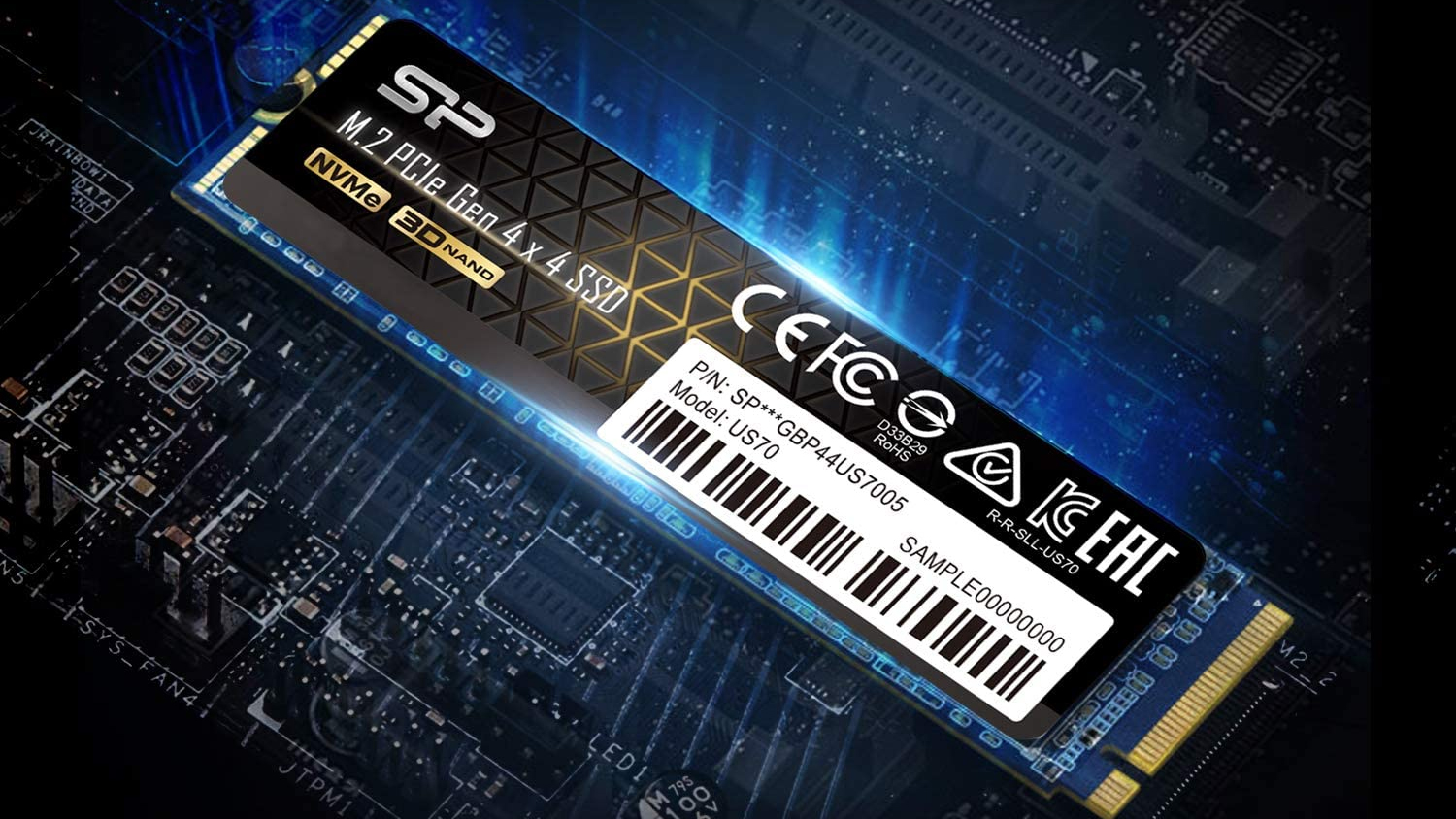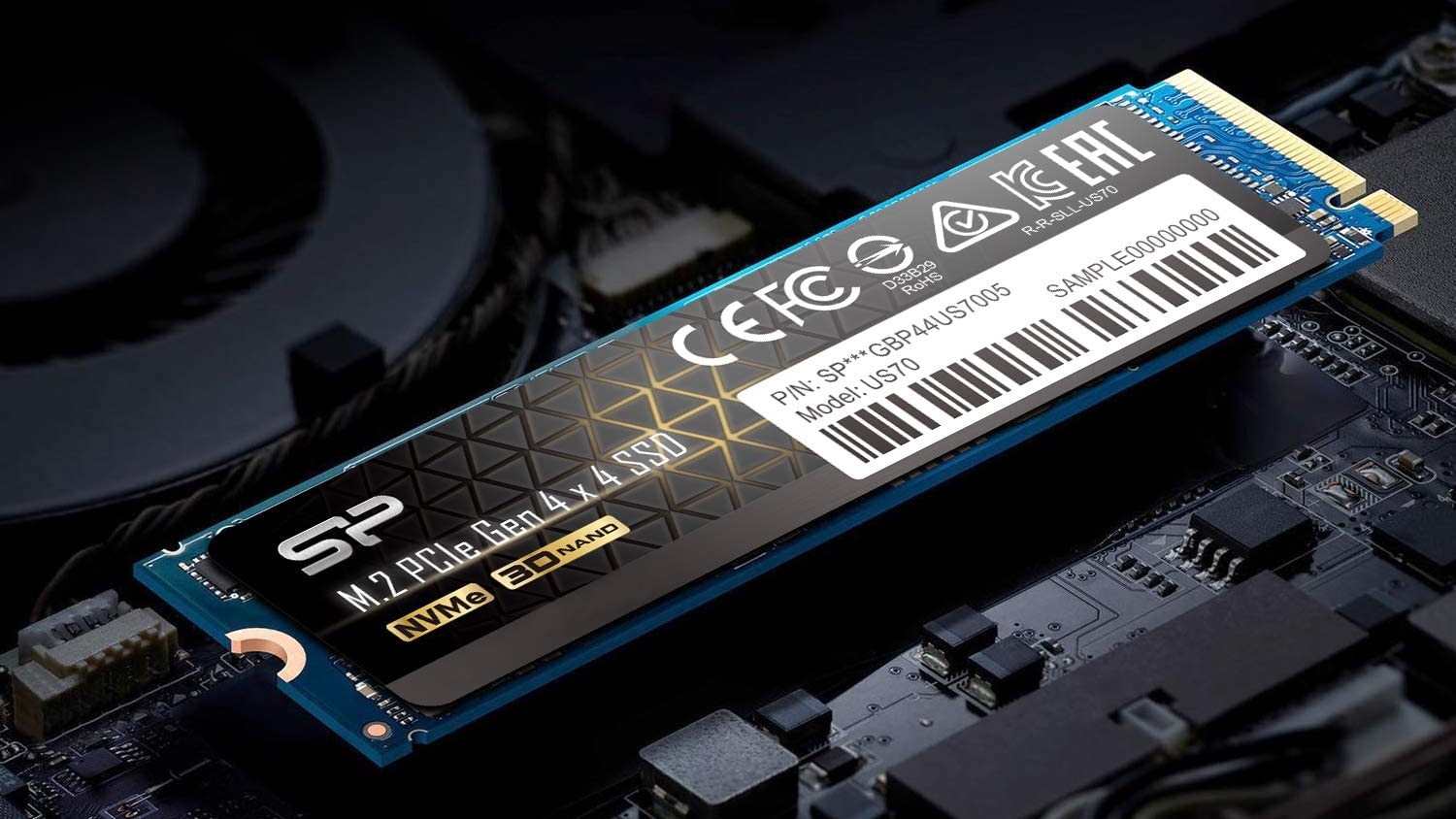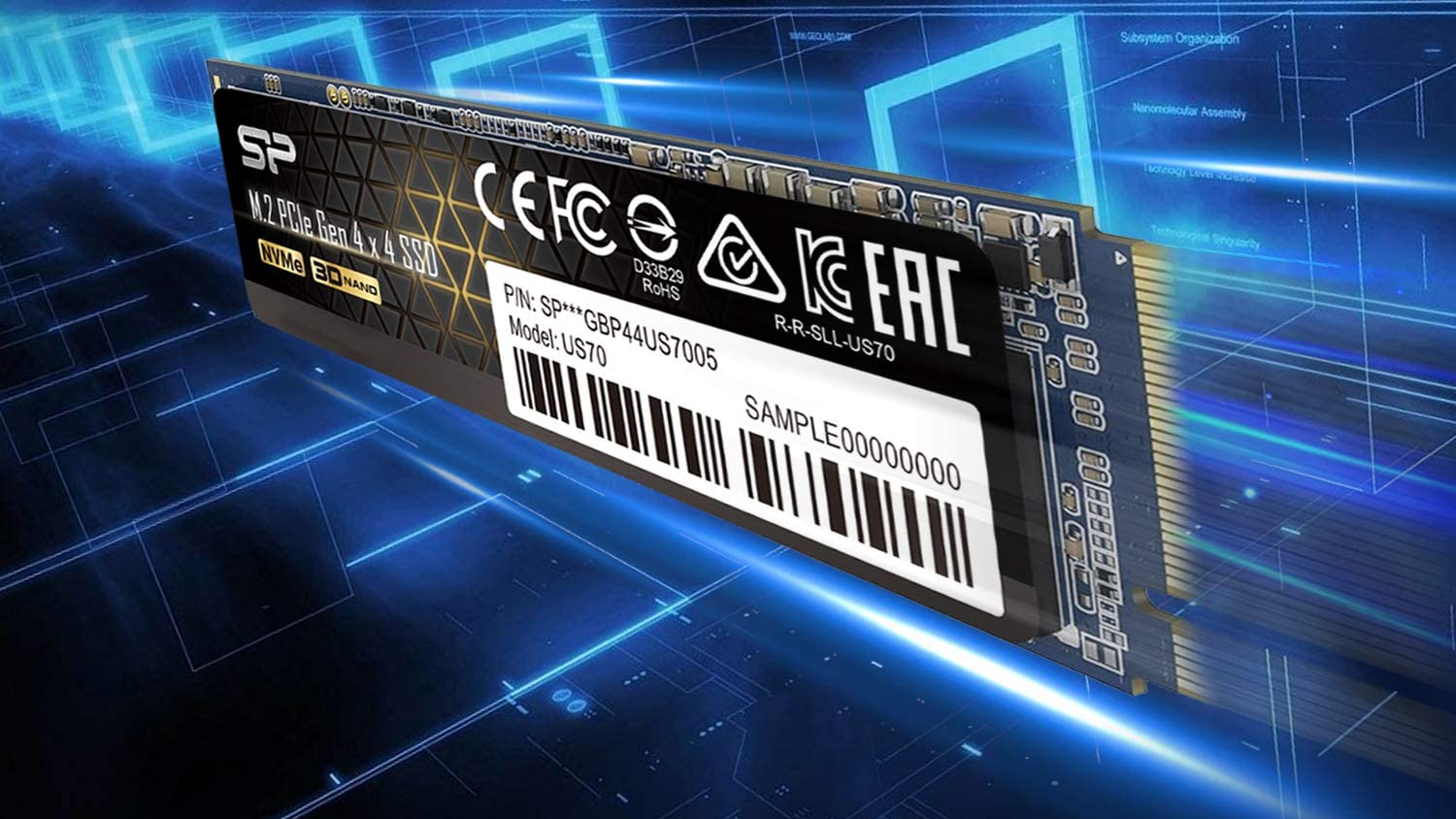GamesRadar+ Verdict
The Silicon Power US70 Gen 4 isn't likely to light the PC gaming world on fire, but it offers great value and will offer solid performance for its price point.
Pros
- +
Fast and stable performance
- +
Quick and simple installation
- +
Effortless configuration
- +
Great value
Cons
- -
Lacks features and extras
Why you can trust GamesRadar+
The Silicon Power US70 SSD is the latest from the memory maker, and in a world that moves as quickly as PC architecture does, it could offer just the ticket for those prioritising value for the ir next SSD for the ir PC (or maybe even PS5?). This PCIe Gen 4.0 NVME SSD demonstrates that small form factor memory solutions can be efficient and convenient - and doesn't have to come with a second-mortgage demanding price tag. From a value perspective, colour us intrigued at this early point.
We reviewed the 2TB model which is priced at a little over $300. The 1TB model may just be the sweet spot though, with a price tag of $180. That's a very reasonable price point for a PCIe 4.0 SSD. The question is, does the Silicon Power US70 Gen 4 SSD have what it takes to rank up there with the best SSDs for gaming?
Silicon Power US70 SSD: Design and features
The aesthetics of the unit are as unassuming and unimportant as you imagine - you're never really going to notice the SSD in practice. It should be noted, this particular model comes without a heat sink. It's possible that your motherboard may have a heatsink ready to screw onto it, but if not, we recommend getting a heatsink in order to keep those internal temperatures down. This will be imperative if you intend to try this as a PS5 SSD too.
On that subject of what's not included, you not only don't get a heatsink, but you're also missing a screw in order to secure the M.2 drive to the bay. Again, some motherboards have come with these inclusions, but it's something to be aware of if you're after an all-in-one solution.

Silicon Power US70 SSD: Performance
Silicon Power claims that the US70 has read and write speeds of up to 5,000MB/s and 4,400MB/s respectively. We put the unit through its paces with some industry-standard stress testing and the results were respectable, to say the least.
Crystal Disk Mark yielded some fine results: 2,823.10 read and 3,321.54 write, which is more than serviceable. Anvil was also favorable with its benchmarks: read total: 5,847.19 and write total: 10,744.14 for a combined overall score of 16,591.33.
In terms of real-world performance, however, I found that downloading and booting up games was effortless when compared to Kingston SA40 SSD and leagues faster than either of my Toshiba 4TB or Seagate 2TB HDDs. The few games that I did load up onto the Silicon Power US70 loaded within the blink of an eye; loading screens were all but a blur.
In order to test the transfer speeds available in a real-world application, I moved 77.9GB of my 4TB HDD over to the Silicon Power US70 Gen 4 SSD, which was being written at average speeds of 158 MB/s - which is commendable given that amount of data.

It's very close to being plug-and-play, too. The configuration process was simple: I opened Partition Manager on Windows and after a few seconds of verifying the file integrity, it was set up and ready to go. It isn't quite as instant as popping it in and hoping for the best, but it's as close as I've seen in recent memory.
As far as thermals are concerned, the Silicon Power US70 hovered between 40 and 44 degrees no matter the intensity of the workload it was under. When gaming or copying files over, there was no noticeable difference in the heat output. There is, of course, the fear that uncovered, this SSD could reach those horror temperatures of 70 degrees plus, but in my experience, using a heatsink helped greatly to negate this issue entirely.
Silicon Power US70: should you buy it?
In conclusion, Silicon Power US70 SSD is powerful enough and efficient at what it does but is unlikely to blow you away with its raw performance prowess as some other units we've playtested like the WD Black SN850 - which operate on another level entirely.
However, what it will offer you is a decent M.2 SSD that's capable of everything you need it to do for a pretty great price. It's the value that matters here and there's far worse for the money given its terrific price-to-performance ratio.

Aleksha McLoughlin served as the Hardware Editor for GamesRadar from June 2021 until August 2022. Her main area of expertise was the PC gaming platform, which comprised buying guides, features, reviews, and news coverage on components and prebuilt machines. She was also responsible for gaming chairs and storage. She now works on a freelance basis while studying to become a university lecturer specializing in English for foreign territories. Prior to joining GamesRadar, she wrote for the likes of Expert Reviews, The Rory Peck Trust, No Clean Singing, Vinyl Chapters, and Tech Spark while also working with the BBC.



